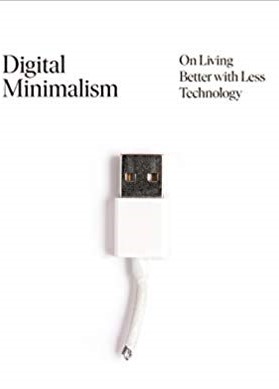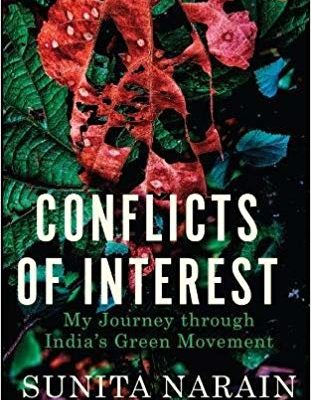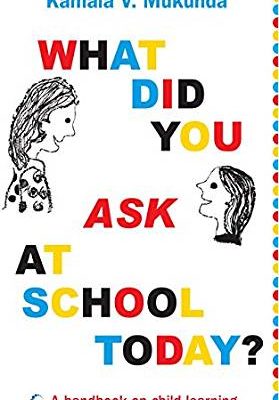This year, out of the many things I read on the relationship between the digital world and human beings, two books stood out. Out of these two, the one by Cal Newport, titled Digital Minimalism is the theme of this post. I shall come back with a post on the second one shortly. Let’s move on to Cal’s prescriptions for digital beings.
Our digital lives
It won’t be an exaggeration now to call human beings as digital beings. Such is the impact of digital technologies on the lives of people at least in the developed and developing regions of this planet and life without those technologies and gadgets is difficult to imagine. However, while technology keeps giving us its tools with extraordinary power, it is up to us to define our relationship with them. How does it interfere with our daily lives? Are we in control of our relationship with the digital world?
Man is spending a considerable amount of his/her time with electronic gadgets and one of the most familiar sight today is a human being glued to his/her mobile screen. Millions of messages, videos/audio clips are shared every moment across the globe and this world never looked more connected. However, the fact remains that we are still left with only 24 hours per day to pack everything. The point is that we are not just using gadgets whenever we want, but we are hooked to them.
Social media platforms have a simple operating plan. As they connect us, they grab our time and conscious attention and sell it to the highest bidder making us products in the whole game. While social media platforms have created an extremely connected world and offer us multiple benefits, the issue comes when everyone is hooked at the cost of everything else. The cost is perhaps our personal and family time and the time to pursue more worthy goals in life. As Thoreau says in Walden,
“ the cost of a thing is the amount of what I call life which is required to be exchanged for that. “
What Cal Newport, who incidentally is not in Facebook or Twitter or Instagram, suggests is not a complete shutdown of social media but the intelligent use of the same. Technology is here to stay and it has transformed our lives in ways beyond anyone’s imagination. He says that we must take control of technology rather than subjecting ourselves to its manipulation. He has coined a term for the most optimum use of online technologies without affecting our lives. According to the author,
“Digital Minimalism is a philosophy of technology use in which you focus your online time on a small number of carefully selected and optimised activities that strongly support things you value, and then happily miss out on everything else. “
An action plan
Adoption of a philosophy of digital minimalism is not a quick one. It involves multiple stages and he suggests, to begin with, a Digital Decluttering. It has three stages .i) Put aside a thirty day period in which you will take a break from optional technologies in your life. ii) During this thirty day break, explore and rediscover activities and behaviours that you find satisfying and meaningful. iii) At the end of the break, reintroduce optional technologies back into your life, starting from a blank slate. For each technology, you reintroduce, determine what value it serves in your life and how specifically you will use it so as to maximise this value. He adds that while trying the removal of any technology from one’s daily life for this short period ensure that it does not cause serious harm to personal or professional life. The main point of a digital decluttering process is to help someone to rebuild their relationship with technology from scratch. It also helps us to cultivate a digital life where the new technologies serve our deeply held values rather than subverting them without our permission.
It is not enough that we come out of digital technologies that do not add any value to our life but it is equally important that we find alternatives to those things in our life. How do we make our time more meaningful and useful? To begin with, Cal exhorts us to rethink our approach to solitude. We are living in an age when we hardly have time to be alone. A time to be with our thoughts and experiences. When we are constantly connected, when others thoughts hit us continuously we miss out on a very vital element which is required to regulate our lives. Unlike in the past, where there were always certain situations where we were alone, it has now become an impossibility with our connected lives. As Cal tells us,
“we need solitude to thrive in our lives and humans are not wired to be constantly wired. “
Another important aspect is the quality of our interactions with others. We tend to view online connections as the end. However, online interaction is no alternative to the more richer offline, personal interactions which we should have. Often, the time we spend on social media reduces our time for such interactions. There is a subtle difference between connection and conversation. When texting is fast replacing all other modes of communication, the author argues that we need to reclaim conversation whenever possible.
” Face to face conversation is the most human and humanising thing we do. Fully present to one another, we learn to listen . Its where we develop the capacity for empathy. Its where we experience the joy of being heard, of being understood. “
Our offline interactions help us to cultivate those minimum number of enduring relationships as compared to the thousands of casual connections we have in social media. Finding creative ways to spend time rather than always looking at our screen is very important. Here comes the importance of quality leisure activities we pick up. It could be anything from learning a new skill to doing a craft. The author suggests a number of things for people who wants to engage themselves creatively in the real world.
Living better with less technology
The heading given above which appear on the cover of the book may be misleading. But , if anything needs an introspection, it is our relationship with the emerging technologies and gadgets. Most of the parents I encounter, complain of a certain kind of gadget addiction for their children. We see a very high level of distraction among students and in many families, social media is the villain. Internet technologies are revolutionary but what matters is how we use them to our advantage. What is the use of technologies if they do not improve our lives and make us better human beings? What is the use of social media if it plays havoc with our personal and family lives and keep us lonely in our narrow world? Digital Minimalism is a book with many prescriptions for everyone struggling with these questions. It is up to each reader to pick up what he/she wants from this book and apply in their lives. As the author tells in his concluding lines , it is all about “ cultivating a life worth living in our current age of alluring devices.” I am sure, it’s a worthy goal for anyone.






No Comments